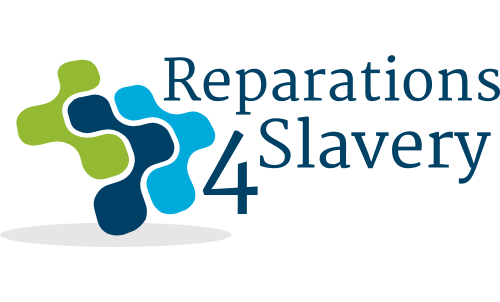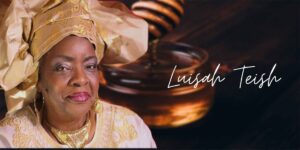An Interview with David Ragland, PhD
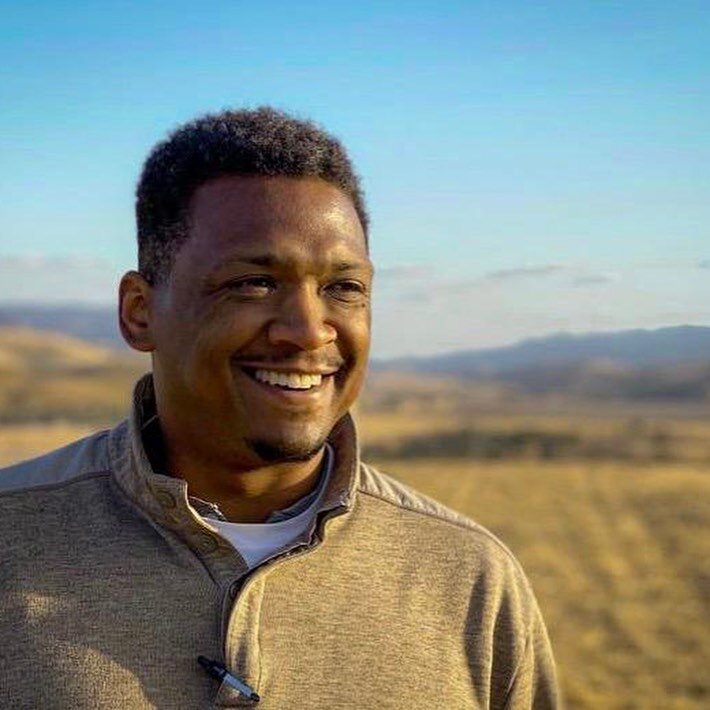
David Ragland, PhD is a writer, scholar, and activist with a focus on racial justice, reparations and abolition. He is a co-founder and co-executive director for Culture, Organizing and Reparations at the Truth Telling Project and is currently the director of the Grassroots Reparations Campaign. David Ragland teaches 'Reparations as Spiritual Practice" and "Truth, Reconciliation and Healing" courses at Harvard Divinity School. He is also a special advisor to Congresswoman Cori Bush and a number of progressive political candidates throughout the U.S.
In the aftermath of Mike Brown Jr.’s murder in Ferguson, MO., David co-founded the Truth Telling Project to help community members control their own narrative, document abuses by law enforcement, uplift stories of those who experience police violence, and heal from past and ongoing trauma through truth-telling. Additionally, he serves as Director of Reparations at Jubilee Justice, a group supporting regenerative agriculture throughout the Southeastern seaboard and critical education for traditional wealth holders.
Caleigh Grogan, Harvard Divinity School student and R4S intern, interviewed David Ragland about his views on faith community involvement in the movement for reparations.
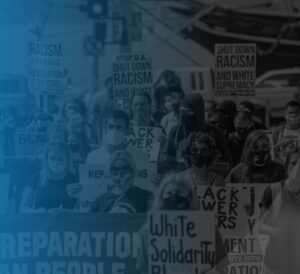 Caleigh Grogan:
Caleigh Grogan:
Dave, thank you so much for joining us. My first question is about faith—how would you describe your current connection to faith or spirituality?
David Ragland:
Thanks, Caleigh. I'm glad to be here.
So, throughout my life, I've been seeking a connection to the universal. In my spirituality and practice of sacredness, I've been seeking to resolve binaries and dualisms, break down walls, and be connected. I've been searching for a place of comfort and rest where I feel safe to engage in the kind of spirituality that speaks to my heart.
"Reparations work is an extension of my faith;
my understanding of, and my connection to the sacred."
I was born into a Black Southern Baptist family in St. Louis, Missouri. But by high school, I had also been exposed to the Nation of Islam; during my freshman year in college, I converted to Sunni or Orthodox Islam. If I were to summarize where I am now, I would say spirituality is how we move on a day-to-day basis and how we interact with the sacred and everyone around us. My daily practice involves: How do I move into that acknowledgment, that way of being?
Caleigh Grogan:
How do you feel like your understanding of faith or spirituality has changed through your engagement in reparations work?
David Ragland:
Reparations work is an extension of my faith, my understanding of, and my connection to the sacred. Even though I converted to Islam, I’ve always had an unsettledness in relation to religion. I’ve had trouble finding Muslim communities that I could relate to, or that wanted to relate to me. I found a lot of anti-blackness in non-black Muslim spaces.
In 2017, The Truth Telling Project, Restorative Justice for Oakland Youth and Fellowship of Reconciliation began thinking about reparations as a way to accomplish racial healing and justice. This effort was led by Senior Bayard Rustin Fellow, Dr. David Ragland, International Fellowship of Reconciliation (IFOR) International Coordinator Reverend Lucas Johnson, and Chrissi Jackson, Co-founder and former Co-Director of the Truth Telling Project.
Together they created the “FOR National Grassroots Truth and Reparations Campaign,” a program that, with the Truth Telling Project, emphasized the need to speak and hear the truth about the original sins of genocide, slavery, and post-slavery forms of systemic racism.
The Grassroots Reparations Campaign carries on the work of FOR Truth and Reparations. Arguing that reparations are the midpoint between truth and reconciliation, we engage in interfaith consciousness-raising about the need for reparations and have built a coalition of leaders from congregations, faith-based organizations, and ethically centered organizations. Our ultimate goal, in addition to encouraging critical reflection, is for white-dominated organizations to form reparative relationships with Black-led grassroots organizations that will define what reparations looks like for them.
David Ragland:
Now, that’s not to say that racism and racist assumptions didn’t come up within the frameworks we were building. In fact, we saw that we could connect with those communities using our framework of repair, yet we couldn't avoid the flaws and problems that we saw in those communities, especially regarding race.
In 2019, when we launched The Grassroots Reparations Campaign, we began with interfaith groups. So, while I had one experience with people in Islam, during my activist career, I often worked with interfaith groups that were welcoming, even if they were non-Black. The people who were drawn to our work were people who understood truth and reconciliation from their own religious perspectives and spiritual frameworks.
"Reparations is the midpoint between truth and reconciliation."
Yet, the people who were giving us space and supporting our work were people in interfaith communities, people who were trying to live out their faith. It was those communities that convinced us that in addition to truth-telling and talking about historical accountability and this idea of taking a moral inventory, we should be talking about reparations. And so, I began to feel at home in my own spirituality when we began the work around reparations because I could see it moving people and communities toward the real work of repair rather than just speaking the words. That is how we created our Reparations Sabbath Days and Reparations Sundays and the idea of a season of repair.
Spirituality, for me, is about faith in people. As we cultivated and worked with these communities to understand reparations and how that concept could fit into spirituality, that engagement deepened my faith. It helped me understand reparations as a spiritual practice, reparations as the midpoint between truth and reconciliation.
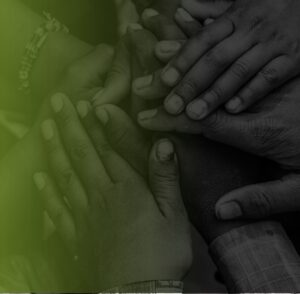 If reparations is a spiritual practice, what does it look like to make it central to your daily life, a core part of being human? We make a mistake, we pay amends, we repair. The perpetrator of harm repairs the harm that they perpetrated. And that's how the community comes back into balance.
If reparations is a spiritual practice, what does it look like to make it central to your daily life, a core part of being human? We make a mistake, we pay amends, we repair. The perpetrator of harm repairs the harm that they perpetrated. And that's how the community comes back into balance.
So, the question is, ultimately, how do we treat each other on a daily basis? How do we maintain the sacred? How do we remain connected to each other and to this planet?
Caleigh Grogan:
Beautiful, wow. These feelings really echo my feelings of spirituality as well. OK, let’s move back in time. What books, people, or other resources have served as spiritual inspiration for your work? What resources fueled your journey toward repair?
Recommended Resources:
Caleigh Grogan:
What have you seen as common stumbling blocks for faith communities trying to engage in reparations work? Can you give an example?
David Ragland:
Great question. A typical stumbling block faith communities face has been focusing on external aspects of repair, like supporting the reparations bill HR-40, rather than first focusing on the teachings that back up reparations in our spiritual traditions and relationship-building. Faith communities must look inward first.
For instance, if you try to work with people that you're not in relationship with, on a personal level, you may quickly find that you don't have clear agreements around even the simplest definitions of what the work is. What do you mean when you say reparations? Or decoloniality? What do you mean when you talk about white people's work? This can happen within the congregation and again when the congregation tries to connect with the Black community. People have to be on the same page, and that takes time. Also, white helpfulness without understanding shared history, without connection to Black communities, and without a clear invitation quickly becomes problematic.
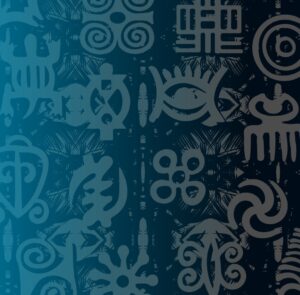
There needs to be an attitude of accompaniment in terms of reparations. Mary Watkins’s book Mutual Accompaniment and the Creation of the Commons is an important resource.
Depth psychology work and shadow work are equally critical. A program at Pacifica Graduate Institute on depth psychology and the psychology of community liberation speaks to this work.
Christian churches should initially be dealing with their legacy of colonization, with their own role in propagating settler colonialism around the world. That’s a major issue. If your congregation is not doing that, something is already wrong with the process. For instance, particularly when we see places like Uganda, Congo, and most recently Ghana having created homophobic laws that make being a homosexual illegal and find that those laws are being propagated in Africa by white evangelical Christian missionary groups, this is the kind of history your congregation needs to know about, not just the involvement in slavery. Americanism and American views like these are going to kill this planet and kill the people.
Caleigh Grogan:
So, what qualities have you seen in faith communities progressing in their reparations work?
Reparations movements must divest from a culture and economy of death and extraction and invest in cultures of life—in people, in communities, and in technologies and products that don't rely on non-sustainable extraction.
David Ragland:
When spiritual and religious communities can provide education at various levels for their congregation, engage them in concepts like reparations, and then find a way to apply this knowledge once relationships are built, we begin to see progress. For instance, the Interfaith Movement for Human Integrity is a California organization focusing on abolition and reparations. As we deepen our commitment and perspective on the nature of reparations, we must also begin to work toward abolition and ending oppressive systems. When we see clear connections to the violence that still occurs, which requires us to engage in repair, we get closer to the truth. People may initially be inspired by the concept of reparations, but it takes understanding how deep our history of oppression is and how much work must be done to transform our society and our institutions so that they can serve people rather than harm people.
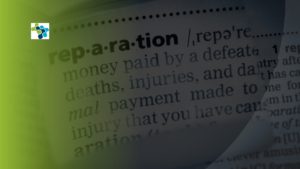
At the deepest, most radical level, I think that churches have to engage in a collective anti-capitalist movement because capitalism is so intertwined with the most violent instances and situations and conditions that are happening around the world. These conditions are not compatible with faith. Ultimately, the conflicts we see today, from Congo to Sudan to Palestine, are rooted in the extraction of resources from oil to cobalt to coal and lithium. We see the US and Israeli governments in the middle of those conflicts, supplying weapons. It’s the modern form of colonization, and the world is literally being pushed over the edge. Reparations and abolition are issues about the survival of humanity. It is that simple: white supremacy and its economic engine, capitalism, have pushed us to the point where neither our planet nor our people can breathe. Think of this image: cops with their knees on Black folks' necks. Now, expand that image to our world. White colonizers have their knees on the planet's neck.
Reparations movements must divest from a culture and economy of death and extraction and invest in cultures of life—in people, in communities, and in technologies and products that don't rely on non-sustainable extraction. Faith leaders need to ask people the following questions: What is your salvation worth? What are you willing to do? What are you willing to give up?
The first step of a successful process like this was the simple act of connecting and listening.
Caleigh Grogan:
Can you give us specific examples of faith communities successfully engaging in this work? What are some of the phases of repair that they have gone through? Where are they now, and have they formed partnerships? Who do they work with outside of the congregation?
David Ragland:
One community I continue to work with is in Philadelphia, and we began by getting to know each other and learning together. We did a class with a few organizers and then expanded to include organizers nationwide. Afterward, the ones from Philadelphia wanted to bring the whole community together. So, we did a course and had attendance from over 30 congregations in Philadelphia, more than a hundred people, a week-long in-person course in Philadelphia. But before we even began that course, the organizers we worked with in Philadelphia returned to their congregations and worked with the Black community members to figure out how any reparative funds they raised would be used.
 One step was to create a budget with reparations in it. They wor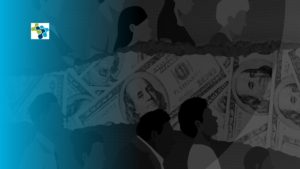 ked through that process and decided to use $50,000 of those funds to create a process to help free entangled mortgages in the Black community. And they cleared up over $11 million in mortgages with $50,000. $11 million worth of entangled property that black folks would've lost in one neighborhood in Philadelphia. So, they stabilized housing by working with Black folks from that community. So that's what I call experimentation, learning experimentation, learning by working together in community.
ked through that process and decided to use $50,000 of those funds to create a process to help free entangled mortgages in the Black community. And they cleared up over $11 million in mortgages with $50,000. $11 million worth of entangled property that black folks would've lost in one neighborhood in Philadelphia. So, they stabilized housing by working with Black folks from that community. So that's what I call experimentation, learning experimentation, learning by working together in community.
They also worked together to lift up the conversation on reparations across the community. They created a smaller practice group, which helped get the Philadelphia Reparations Task Force off the ground. And now they're doing even more projects. They're working with communities of color to set up urban farms for communities that have food deserts. They're helping Black people address their basic needs, such as housing and food. And the first step of a successful process like this was the simple act of connecting and listening.
Ultimately, we cannot do this work alone. Part of the impulse of coloniality is to walk this road alone. You can't.
Caleigh Grogan:
My last question is, what is one piece of advice that you would give to someone who is working to help their faith community take seriously the need for reparations?
David Ragland:
Make sure your family is on board first—your own family. Be sure you have support for what you are doing. Ensure you understand the spiritual basis for reparations and have at least one other person in your faith community who supports you. Be willing to experiment with how you work toward repair because you might have to try one way, and then you might have to try another way.

Ultimately, we cannot do this work alone. Part of the impulse of coloniality is to walk this road alone. You can't. You will burn yourself out or quit out of frustration. Or, worse, if you have lots of power and gravitas, you may be able to move quickly, but conditions will revert when you're not there to oversee or steward the work. Those are the typical ways we see failure. To succeed, you must work as a community. But if you can convince just a few folks, you can begin to move a congregation.
Caleigh Grogan:
That's fantastic. Thank you so much.
